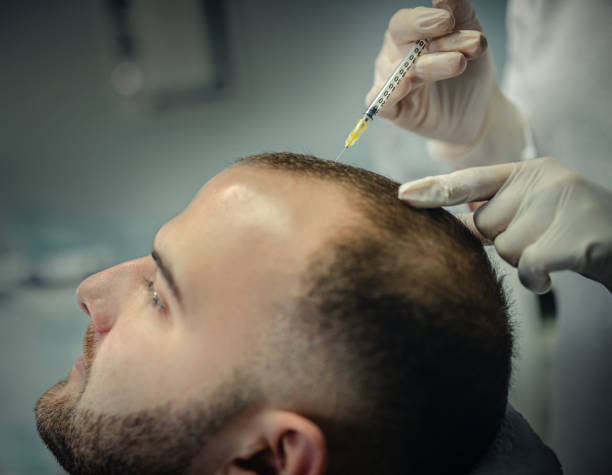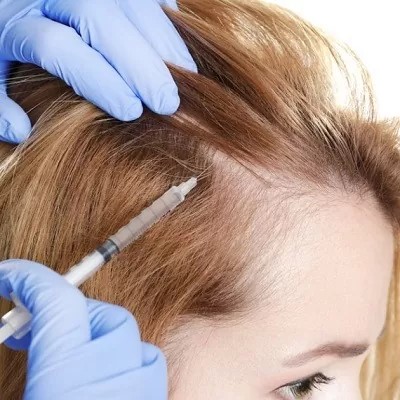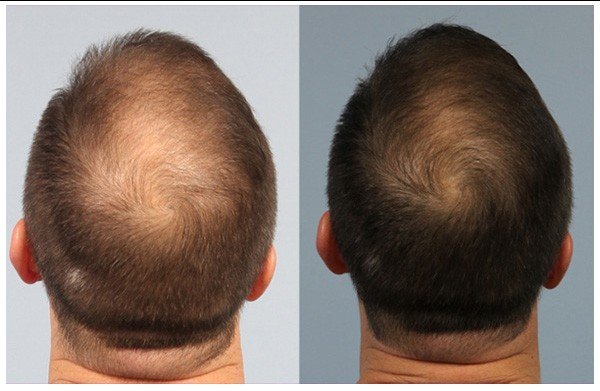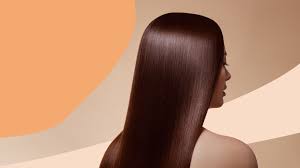 Blog Speed Optimization – Make Google & Users Happy!
Blog Speed Optimization – Make Google & Users Happy!
Effective Hair Loss Treatments: A Comprehensive Guide
Written by salmaa ajaib » Updated on: June 17th, 2025

Hair loss is a widespread issue that affects millions of individuals globally, impacting both self-esteem and personal confidence. Although often associated with aging, hair loss can result from a variety of factors including genetics, medical conditions, and lifestyle choices. Understanding these causes and exploring effective treatments can help individuals address hair loss and improve their quality of life. This guide will cover the common types of hair loss treatment in Islamabad available today.
Understanding Hair Loss
Hair loss, or alopecia, can manifest in different forms. The most common types include:
Androgenetic Alopecia: Known as male-pattern or female-pattern baldness, this genetic condition is the most prevalent type of hair loss. In men, it typically results in a receding hairline and thinning crown, while women often experience diffuse thinning across the entire scalp.
Alopecia Areata: This autoimmune disorder causes sudden, round patches of hair loss. The immune system mistakenly attacks hair follicles, which can lead to complete hair loss on the scalp or body in severe cases.
Telogen Effluvium: This type of hair loss occurs when a significant number of hair follicles enter the resting phase (telogen) simultaneously, causing widespread thinning. It is commonly triggered by stress, illness, or hormonal changes.
Traction Alopecia: Resulting from continuous tension or pulling on the hair, often due to tight hairstyles like braids or ponytails. If detected early, changing hairstyles can usually reverse this type of hair loss.
Medical Treatments
Several medical treatments are effective for managing hair loss. Here are some of the most widely used options:
Minoxidil: Available over the counter in 2% and 5% formulations, minoxidil is a topical treatment applied directly to the scalp. It works by stimulating hair follicles and extending the growth phase of hair. Many users report significant regrowth and thickening, though results can vary, and it often takes several months to notice improvement.
Finasteride: A prescription oral medication, finasteride is used primarily for male-pattern baldness. It works by inhibiting the conversion of testosterone to dihydrotestosterone (DHT), a hormone linked to hair follicle shrinkage. Studies have shown that finasteride can effectively slow hair loss and promote regrowth in many men.
Platelet-Rich Plasma (PRP) Therapy: This treatment involves drawing a patient’s blood, processing it to concentrate the platelets, and injecting the plasma into the scalp. The growth factors in PRP can stimulate hair follicle activity and encourage hair growth. Multiple sessions may be required to achieve desired results, and it has gained popularity for its natural approach.
Hair Transplant Surgery: For more advanced cases of hair loss, hair transplant surgery can offer a permanent solution. Techniques like Follicular Unit Transplantation (FUT) and Follicular Unit Extraction (FUE) involve moving hair follicles from a donor site (usually the back of the head) to the balding areas. While effective, this option can be costly and requires a recovery period.
Lifestyle and Home Remedies
Alongside medical treatments, certain lifestyle changes and home remedies can support hair health and potentially slow hair loss.
Balanced Diet: A diet rich in essential nutrients like iron, zinc, biotin, and protein is crucial for maintaining healthy hair. Incorporating foods such as leafy greens, nuts, seeds, and lean meats can provide the necessary vitamins and minerals for hair growth and strength.
Stress Management: Chronic stress can contribute to hair loss, making stress management strategies essential. Practices like meditation, yoga, and regular exercise can help reduce stress levels and benefit overall hair health.
Scalp Care: Maintaining a healthy scalp is vital for hair growth. Regular scalp massages can improve blood circulation and promote follicle health. Avoiding harsh chemicals and minimizing heat styling can prevent further damage and support hair growth.
Essential Oils: Certain essential oils, such as rosemary, peppermint, and lavender, are believed to enhance hair growth. When diluted with a carrier oil and massaged into the scalp, these oils may help stimulate hair follicles and improve scalp health.
Emerging Treatments
Ongoing research is bringing forward new and promising hair loss treatments:
Low-Level Laser Therapy (LLLT): LLLT uses low-level lasers to stimulate hair follicles and promote growth. Although the exact mechanism is not fully understood, research suggests this non-invasive treatment can be effective for hair loss.
Stem Cell Therapy: Stem cell therapy aims to regenerate hair follicles using stem cells. Although still experimental, preliminary studies show potential for this innovative approach to revolutionize hair loss treatment in the future.
JAK Inhibitors: Originally developed for autoimmune diseases, JAK inhibitors have shown promise in treating alopecia areata by blocking the immune response that targets hair follicles.
Conclusion
Hair loss can be a challenging and emotionally taxing experience, but a range of treatments is available to help manage and potentially reverse the condition. From medical treatments like minoxidil and finasteride to lifestyle changes and emerging therapies, there are numerous options to explore. Consulting with a healthcare professional is crucial for developing a personalized treatment plan and achieving the best possible results.
By understanding the underlying causes of hair loss and considering the available treatments, individuals can take proactive steps to improve their hair health and regain their confidence. Whether through traditional treatments, lifestyle modifications, or innovative therapies, effective solutions are available for those seeking to address hair loss and restore their self-esteem.
Note: IndiBlogHub features both user-submitted and editorial content. We do not verify third-party contributions. Read our Disclaimer and Privacy Policyfor details.
Copyright © 2019-2025 IndiBlogHub.com. All rights reserved. Hosted on DigitalOcean for fast, reliable performance.













